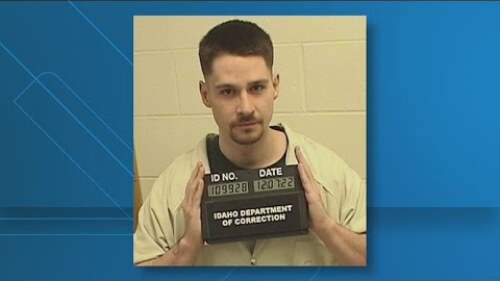By Olivier Uyttebrouck
Albuquerque Journal
ALBUQUERQUE, N.M. — Type 1 diabetes kept Matthew Martinez tethered to a kidney dialysis machine for 11 hours a day and dependent on daily insulin injections to keep him alive.
All that ended April 29 when Martinez, 31, received an unusual double transplant that gave him a new kidney and pancreas, curing him of the disease that had dominated his life since childhood.
Diabetes “affects everything from nerves to eyesight — everything,” Martinez said Friday in a patient room at Presbyterian Hospital in Albuquerque, where he received the double transplant 10 days earlier.
Dr. Gregory Larrieux , the state’s only pancreas transplant surgeon, said Friday he expected to discharge Martinez by the weekend.
“I haven’t had to take an insulin shot since Monday night last week,” Martinez said. Best of all, he no longer requires kidney dialysis.
Martinez’s surgery marks the first time that a simultaneous pancreas-kidney transplant was performed in New Mexico using organs from an out-of-state donor, Larrieux said.
Larrieux flew April 29 on a medical air ambulance to El Paso, where he obtained the donor organs. He flew them back to Albuquerque and performed the transplant surgery the same day.
A total of nine patients have received pancreas transplants in New Mexico since the procedure was first performed here in 2017, he said. All nine used organs from Albuquerque donors.
“If we’re waiting until these donors are available and we’re staying in Albuquerque , we’re only going to be doing one every year, give or take,” said Larrieux, a multiorgan transplant surgeon at Presbyterian.
“We can go now to other states in the Southwest and do the same thing, which means we can bring more organs in and affect patients’ lives at a faster rate,” he said.
Type 1 diabetes occurs when the pancreas loses the ability to produce insulin. The lack of insulin causes sugar to build up in the bloodstream, which can destroy the kidneys, damage nerves and eyesight, and have other harmful effects.
Diabetes is the chief reason people require kidney dialysis, Larrieux said. People on dialysis die within five years on average, he said.
Type 1 diabetes often runs in families. Like Martinez, whose younger sister also has the disease, Larrieux has many family members with Type 1 diabetes, including a younger brother.
A pancreas transplant is the only known cure for the condition, he said.
“I really am a believer that everybody, regardless of where you live, regardless of your socio-economic background, you deserve a shot” at a cure, he said. “That’s why I’m here.”
Larrieux was recruited by Presbyterian four years ago from the University of Minnesota to perform pancreas transplants in Albuquerque.
“If I’m able to get on the plane and go wherever, and it’s a reasonable time, then I don’t see any reason why we shouldn’t,” he said.
Kidneys are robust organs that can be transported by commercial airlines, but the pancreas is fragile and requires special care to transport.
If Larrieux hadn’t crossed state lines to obtain donor organs, Martinez would still be waiting for a transplant, he said. Martinez went on a waiting list for a donor pancreas in July.
“I didn’t think any of this would come as soon as it did,” said Martinez, who was told he would likely remain on the list for at least two years.
Martinez, a former corrections officer, said he plans to use his newfound freedom from dialysis to travel and find a new career. Also on his list is skydiving, he said.
© 2025 the Albuquerque Journal (Albuquerque, N.M.).
Visit www.abqjournal.com.
Distributed by Tribune Content Agency, LLC.




